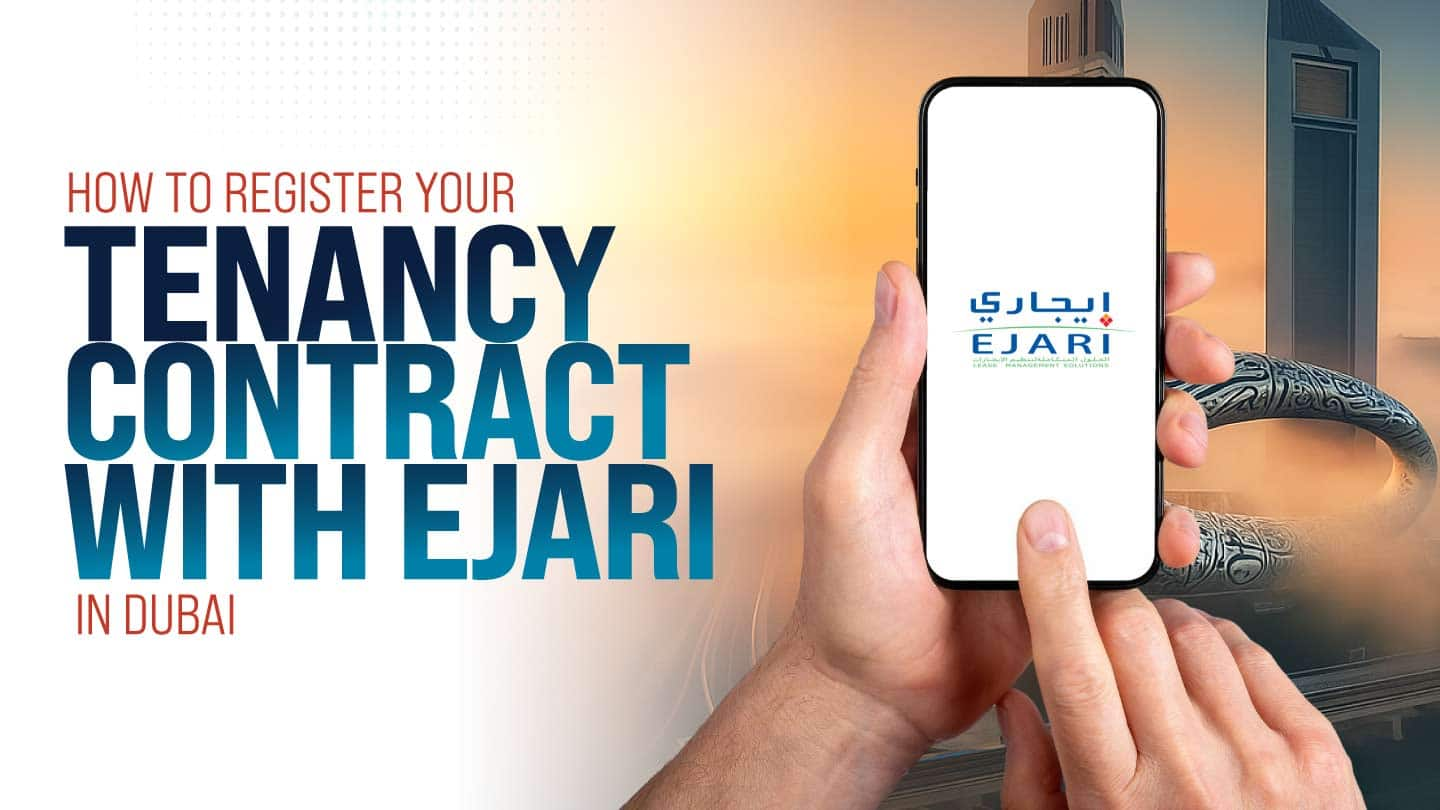Finding a new home in Dubai is exciting, but there’s one important step that every tenant and landlord must take – registering the tenancy contract with Ejari. The word Ejari means “my rent” in Arabic, and it’s the official system set up by the Dubai Land Department (DLD) through RERA. Its main purpose is to make the rental market fair, transparent, and legally protected for both landlords and tenants.
If you’re renting or leasing out a property in Dubai, registering with Ejari isn’t just a formality, it’s the law. Without an Ejari certificate, you won’t be able to set up DEWA utilities, renew your visa, or have your contract recognised in case of a rental dispute. In short, Ejari is what makes your tenancy official and secure.
So, what exactly Ejari is all about, who needs it, how to register for a lease in Dubai, and why it’s such an essential step in your rental journey in Dubai, here we’ll explain everything.
What Is Ejari?
Ejari (Arabic for “My Rent”) is the mandatory online system for registering all rental and lease contracts in Dubai. Managed by the Dubai Land Department (DLD) and the Real Estate Regulatory Agency (RERA), it ensures that private rental agreements are legally binding and recorded in an approved government format.
Ejari was introduced under Law No. 26 of 2007 and later strengthened by Law No. 33 of 2008. These laws made it compulsory for landlords and tenants to register their tenancy contracts.
Key Purposes & Benefits
- Legal Protection: Only Ejari-registered contracts are protected by regulatory authorities and can be used at the Rental Dispute Center in the event of rental disputes.
- Utility Activation: A valid Ejari certificate is required to set up water, electricity, internet, and TV services through DEWA.
- Residency & Visas: Registration is required for processing or renewing residency visas and for sponsoring family members.
- Market Transparency: It creates a standardized record of rental prices, helping to prevent unauthorized rent hikes and fraud.
Note: Not registering your tenancy contract with Ejari can lead to serious issues. For example, you won’t be able to set up or transfer DEWA utilities, you may face visa renewal problems, and in case of a dispute, your tenancy contract will not be recognized in court.
Recent Update: Co-living & Roommates:
A recent update (August 2025) has made Ejari even stricter – tenants must now declare details of any co-living arrangements or roommates when registering their contract. This ensures that all occupants of a property are officially recorded in the system.
Who Can Register for Ejari in Dubai?
By law, the landlord is responsible for registering the tenancy contract with Ejari, as set out by RERA. However, in practice, this task is often passed on to others. Many landlords ask their real estate agents, property managers, or even the tenant to handle the process on their behalf.
So, who can actually register an Ejari contract?
- The Landlord: The property owner can register the contract themselves, particularly if they self-manage their property. They must be registered in the Ejari system to do so.
- The Tenant: It’s very common for the tenant to handle the registration and pay the associated fees, as they need the Ejari certificate for services like connecting to DEWA (Dubai Electricity and Water Authority) or for their visa application.
- An Authorised Representative: This can be a real estate agent, a property management company, or a person with a valid Power of Attorney (PoA) from either the landlord or the tenant.
For landlords who prefer to self-manage, they need to create and activate their own profile in the Ejari system. Once set up, they can directly manage registrations, renewals, and cancellations of tenancy contracts.
Is Ejari Registration Mandatory for Businesses in Dubai?
Yes, Ejari registration is mandatory for businesses that lease office or commercial spaces in Dubai. Just like residential tenants, businesses must register their tenancy contracts with the Ejari system to make the lease legally recognised.
Why it’s important for businesses:
- Trade License and Renewal: The Department of Economy and Tourism (DET) and other licensing authorities often require a valid Ejari certificate as proof of a business’s physical address to issue or renew its trade license.
- Legal Recognition: Ejari registration makes the commercial lease official under Dubai law, protecting both the landlord and the business tenant.
- Government and Utility Services: You need a valid Ejari certificate to open DEWA utility accounts, register trade licenses, or apply for certain government approvals.
- Visa and Labour Procedures: Ejari is often required for sponsoring employees’ visas or renewing residency permits (such as the Property Investor Visa) for business owners and staff.
- Dispute Resolution: In case of lease disagreements, an Ejari-registered contract gives your business legal standing at the Rental Disputes Centre.
Documents Required to Register a Tenancy Contract with Ejari
Before you head to a typing centre or try to register online, make sure you have the required paperwork ready. Missing even one document can delay your Ejari registration. Here’s a checklist of what you’ll typically need:
For Residential Properties:
- Original signed tenancy contract (the unified rental contract)
- Tenant’s documents: Emirates ID, passport copy, and valid residence visa (if applicable)
- Landlord’s documents: Emirates ID or passport copy
- Title deed or ownership certificate of the property
- DEWA premise number or a recent DEWA bill
- Security deposit receipt (if provided)
- Power of Attorney (POA), only if someone is registering on behalf of the landlord or tenant
For Commercial Properties:
- All of the above, plus:
- Trade license copy of the company renting the property
- Any additional approvals (if required by free zone or special authorities)
Note: Always carry both originals and clear copies of documents when registering in person. For online registration, make sure scans are clear and readable, as blurry uploads are one of the most common reasons for rejection.
How to Register Your Tenancy Contract with Ejari in Dubai 2026
There are two main ways to register your tenancy contract with Ejari in Dubai – online through official platforms or offline at approved typing centres/trustee offices. Here’s how each works:
A. Online Registration (via Dubai REST App/DLD Website):
This is the fastest and most convenient option.
- Download the Dubai REST app from Google App Store or Apple App Store or visit the Dubai Land Department (DLD) website.
- Log in using your UAE Pass or create an account.
- Select “Register Ejari Contract” from the services menu.
- Fill in property and contract details (rental amount, duration, start date, etc.).
- Upload all required documents (tenancy contract, IDs, title deed, etc.).
- Submit your application for review.
- The landlord (or their authorized account) will need to approve the request.
- Pay the Ejari registration fees online.
- Once approved, you’ll receive your Ejari certificate digitally.
B. Offline Registration (Typing Centres/Trustee Offices):
This is the traditional method and is useful if you prefer in-person help.
- Visit any authorised Ejari typing centre or Real Estate Services Trustee office.
- Bring all required original documents and copies.
- Staff will enter your contract details into the Ejari system.
- Pay the registration fees at the counter.
- Once processed, you’ll receive a printed Ejari certificate or a reference to download it online.
What are the Ejari Registration Fees in Dubai?
Registering your tenancy contract with Ejari comes with a small fee, and the cost can vary slightly depending on whether you do it online or in person.
Online Registration (via Dubai REST App/DLD Website):
- Registration Fee: AED 100
- Knowledge Fee: AED 10
- Innovation Fee: AED 10
Total Online Cost: AED 120-155 approx.
Offline (Typing Centres / Trustee Offices): Around AED 120–150, plus possible service charges by the centre. Some cases may go up to AED 219, depending on location and added admin fees.
Please Note: Ejari registration fees are subject to change, and it’s advisable to check with the relevant authorities or consult our experts at Shuraa for the most up-to-date fee information.
Ejari Renewal & Cancellation
Renewal:
Ejari contracts are usually valid for the same duration as your tenancy contract, typically one year. When your lease is renewed, your Ejari registration must also be renewed to stay valid. The renewal process is similar to the original registration: you’ll need the updated tenancy contract and the required documents, and you can do it online via Dubai REST/DLD website or offline at a typing centre.
Cancellation:
If you move out before your tenancy contract ends, the Ejari contract must be formally cancelled. This ensures that the property can be registered to new tenants without issues.
How to cancel? The easiest way is for the landlord to cancel it online through the Dubai REST app. You can also visit an Ejari trustee centre to submit the cancellation request in person. Both landlords and tenants can request cancellation, but it is usually initiated by the landlord or property manager.
Important Things to Do After Ejari Registration in UAE
Once your tenancy contract is registered with Ejari, there are several important steps and benefits to be aware of:
1. Activate Utilities (DEWA)
Your Ejari registration is linked to DEWA electricity and water services. Once the registration is complete, you can easily set up or transfer your utilities without delays.
2. Use for Visa and Official Processes
An Ejari certificate is often required for residency visa applications, renewals, obtaining property investor visa, and other government-related procedures. It serves as proof of your legal tenancy.
3. Keep Digital and Physical Copies
Always save both digital and printed copies of your Ejari certificate. You may need them for rent disputes, visa processes, or when dealing with government or utility authorities.
4. Updating Ejari for Changes
If there are changes to your tenancy, such as a rent increase, contract extension, or adding co-tenants, make sure these updates are reflected in Ejari. This keeps your registration current and legally valid.
5. Legal Protection
With Ejari, your tenancy contract becomes a legally recognised document, giving you the right to approach the Rental Disputes Centre (RDC) in case of disagreements with the landlord.
Keep Your Tenancy Safe with Ejari
Registering your tenancy contract with Ejari is an important step for anyone renting or leasing in Dubai. It makes your lease official, protects your rights, and is needed for things like setting up utilities, renewing visas, or solving rental disputes.
Make sure to follow the steps carefully and keep both digital and printed copies of your Ejari certificate. Updating it whenever there are changes in your lease is also important to avoid any problems.
If the process feels confusing or you want to save time, you can reach out to professionals or real estate experts. At Shuraa, we help both individuals and businesses in Dubai, not just with Ejari registration, but also with finding office space, buying property in Dubai, and handling all the paperwork smoothly.
Explore More Real Estate Guides in Dubai
Understanding Ejari is just one part of navigating Dubai’s dynamic property market. If you found this guide helpful, you might also be interested in learning about:
- How to Buy Property in Dubai: A complete step-by-step guide for investors.
- Understanding the Dubai Property Investor Visa: Learn how property investment can lead to UAE residency.
- A Guide to Transferring Property Ownership in Dubai: Essential reading for buyers and sellers.
- How to Become a Real Estate Agent in Dubai: Start your career in the UAE’s property sector.
- Starting a Real Estate Business in the UAE: Everything you need to know to establish your own brokerage or related company.
FAQs: Ejari Registration
1. How to register Ejari in Dubai?
To register your tenancy contract with Ejari in Dubai, you can use the Dubai REST app, the Dubai Land Department (DLD) website, or an authorized Real Estate Services Trustee Centre. The online process via the Dubai REST app involves downloading the app, selecting the RERA service, filling out the application, uploading required documents, and then having the landlord approve the registration before you pay the fee.
2. What are the benefits of registering with Ejari?
The primary benefits are legal protection and convenience. Ejari makes your contract legally valid, which is essential for setting up DEWA, renewing your visa, and resolving any disputes officially. It also prevents fraud by creating a secure, official record of the agreed rent and terms, protecting both tenants and landlords and ensuring a transparent rental process.
3. How much does it cost to register Ejari in Dubai?
The cost to register an Ejari contract in Dubai is approximately AED 120 to AED 150, including VAT, when done through a trustee center, or AED 120, excluding VAT, for online registration via the Dubai REST app. The fee includes the government registration, knowledge, and innovation fees, with additional service partner fees applicable for trustee center registrations.
4. How long does it take to get an Ejari certificate online?
Ejari Online registrations are usually instant or take a few hours once approved. Offline registrations may take a few hours to 1 working day depending on the centre.
5. What happens if you don’t register in Ejari?
Failure to register your tenancy contract in the Ejari system results in a lack of legal recognition, making it impossible to activate DEWA utilities, process visa applications, or resolve disputes legally. Non-registration may also result in penalties.
6. Who is responsible for registering Ejari?
By law, the landlord is responsible. In practice, it can be handled by the tenant, property manager, or real estate agent on behalf of the landlord.
7. Is Ejari registration mandatory?
Yes, Ejari registration is required by law for both residential and commercial leases. Without it, you cannot activate utilities, renew visas, or legally enforce your tenancy agreement.
8. Can a tenant register Ejari themselves?
Yes, tenants can register Ejari if they have the required documents and authorization from the landlord. Many tenants do this online for convenience.
9. Is Emirates ID required for Ejari?
Yes, an Emirates ID is required for Ejari registration, DEWA connection, and other processes related to renting a property. If you are new to Dubai, you can consider renting a property on a short-term basis, such as an Airbnb or hotel apartment, until you receive your residency visa and Emirates ID.
Disclaimer: The information in this post is for general guidance only and may change due to updates in government policies or regulations.










